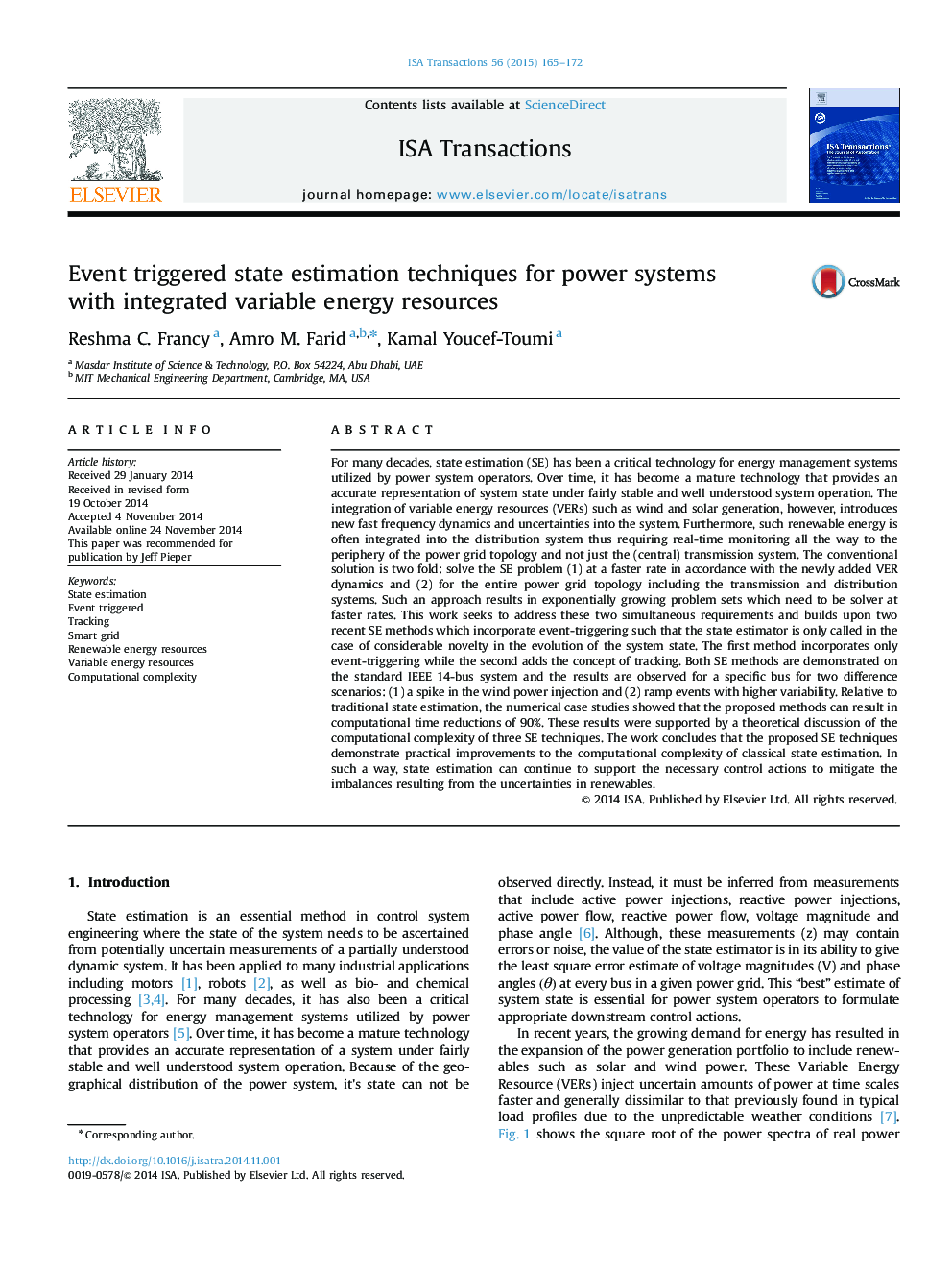| کد مقاله | کد نشریه | سال انتشار | مقاله انگلیسی | نسخه تمام متن |
|---|---|---|---|---|
| 5004469 | 1461199 | 2015 | 8 صفحه PDF | دانلود رایگان |

- Rationalized that renewable energy integration requires state estimation over increasingly large networks at increasingly rapid rates.
- Proposed to event-triggered & tracking enhancements to state estimation.
- Numerically compared the accuracy & computation time relative to traditional state estimation.
- Included a theoretical discussion of the computational complexity of the proposed method.
For many decades, state estimation (SE) has been a critical technology for energy management systems utilized by power system operators. Over time, it has become a mature technology that provides an accurate representation of system state under fairly stable and well understood system operation. The integration of variable energy resources (VERs) such as wind and solar generation, however, introduces new fast frequency dynamics and uncertainties into the system. Furthermore, such renewable energy is often integrated into the distribution system thus requiring real-time monitoring all the way to the periphery of the power grid topology and not just the (central) transmission system. The conventional solution is two fold: solve the SE problem (1) at a faster rate in accordance with the newly added VER dynamics and (2) for the entire power grid topology including the transmission and distribution systems. Such an approach results in exponentially growing problem sets which need to be solver at faster rates. This work seeks to address these two simultaneous requirements and builds upon two recent SE methods which incorporate event-triggering such that the state estimator is only called in the case of considerable novelty in the evolution of the system state. The first method incorporates only event-triggering while the second adds the concept of tracking. Both SE methods are demonstrated on the standard IEEE 14-bus system and the results are observed for a specific bus for two difference scenarios: (1) a spike in the wind power injection and (2) ramp events with higher variability. Relative to traditional state estimation, the numerical case studies showed that the proposed methods can result in computational time reductions of 90%. These results were supported by a theoretical discussion of the computational complexity of three SE techniques. The work concludes that the proposed SE techniques demonstrate practical improvements to the computational complexity of classical state estimation. In such a way, state estimation can continue to support the necessary control actions to mitigate the imbalances resulting from the uncertainties in renewables.
Journal: ISA Transactions - Volume 56, May 2015, Pages 165-172